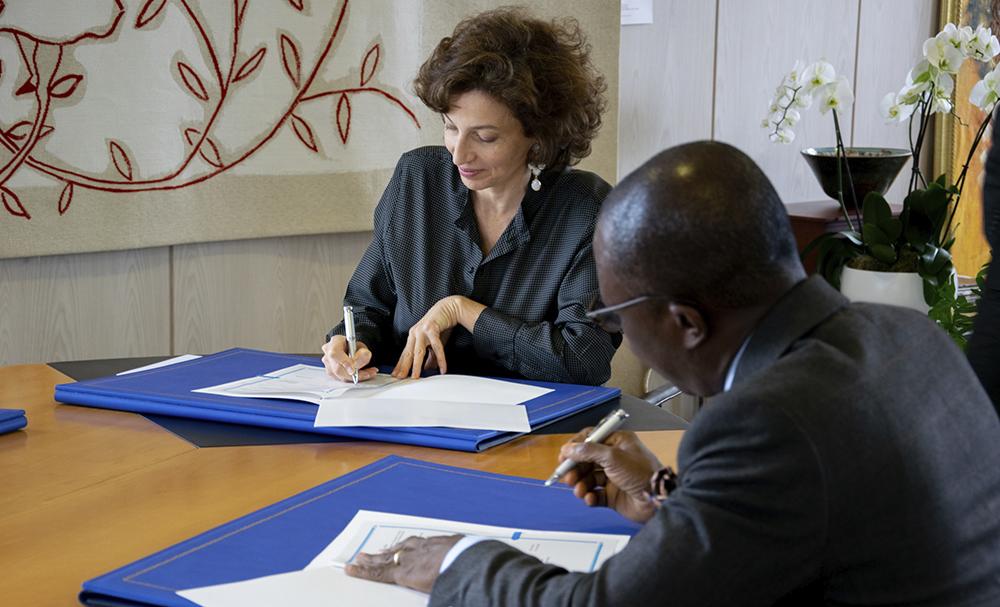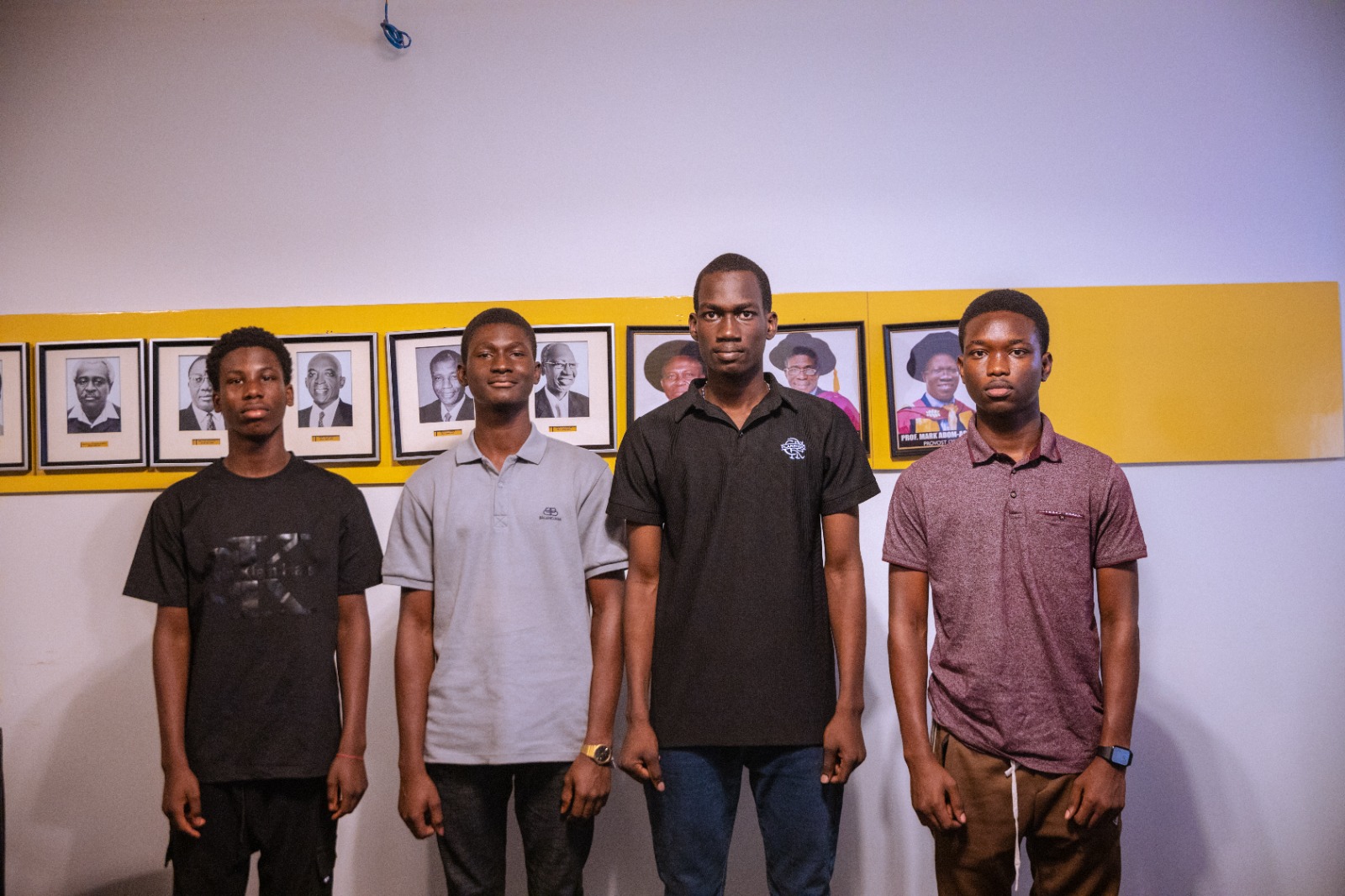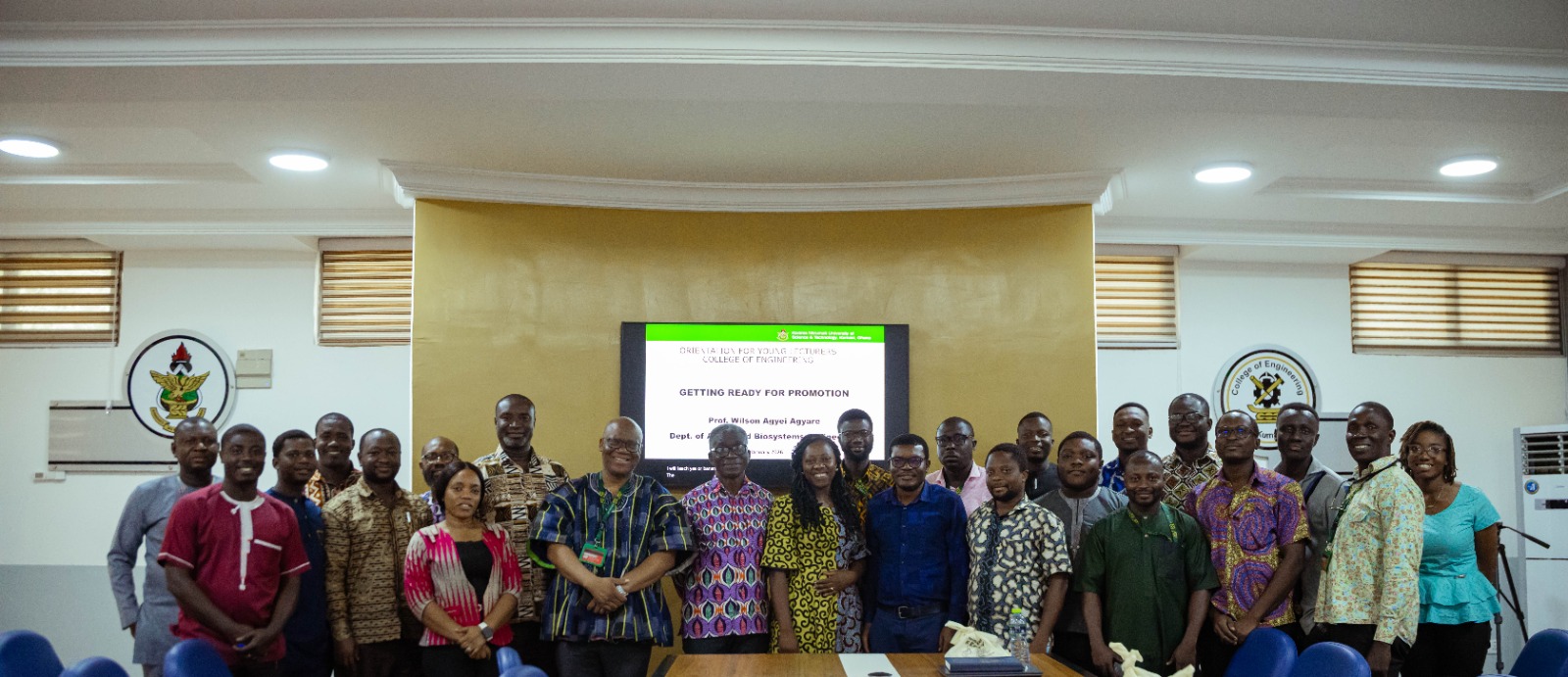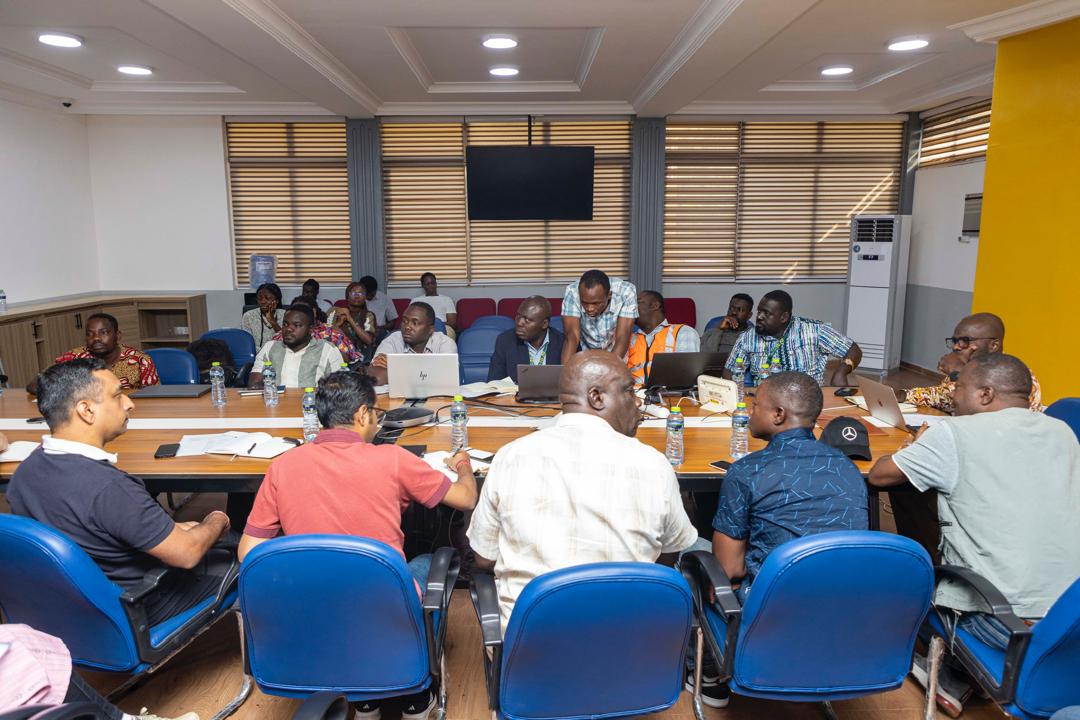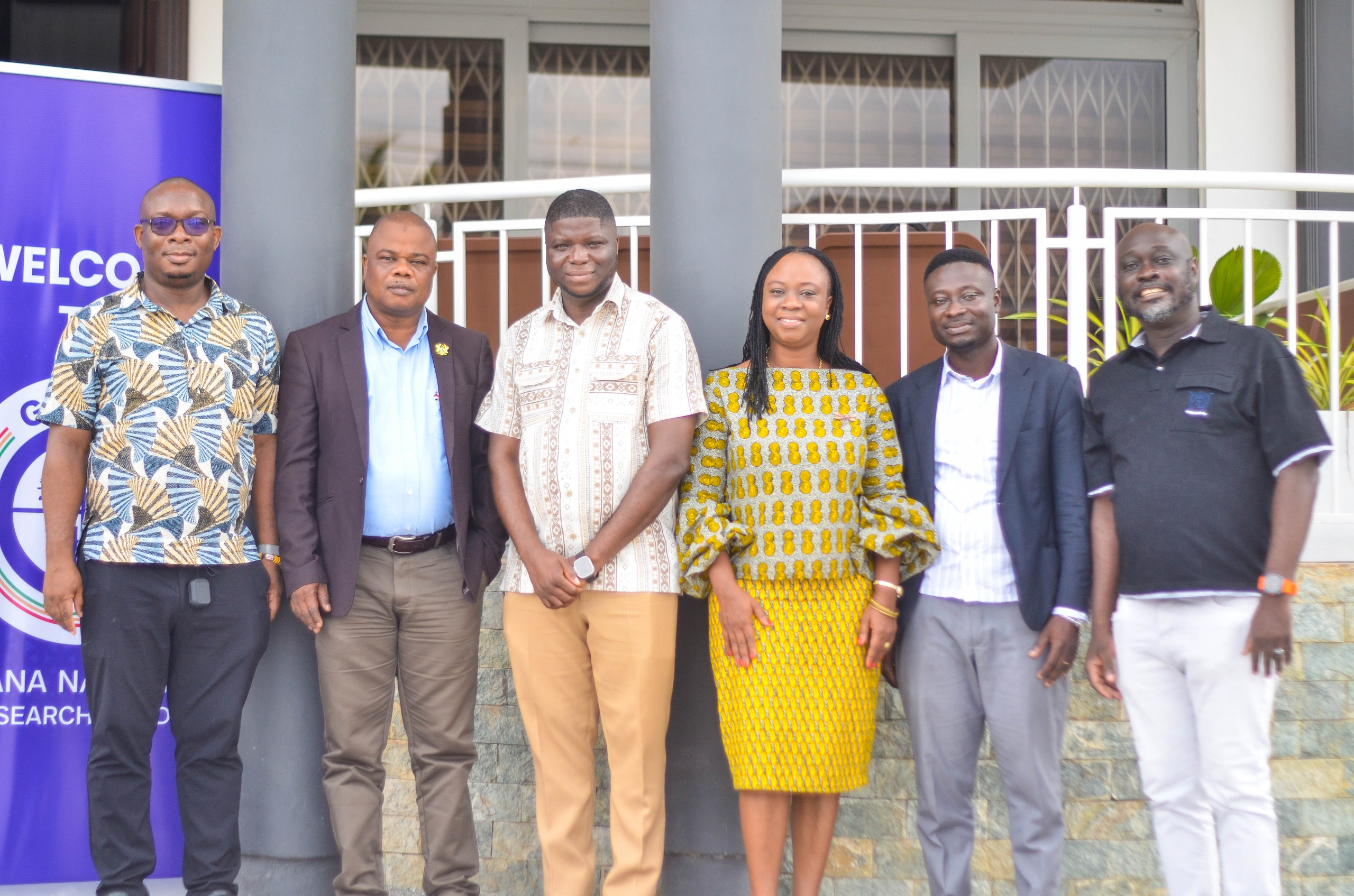The Kwame Nkrumah University of Science and Technology (KNUST) is set to host the first Engineering Centre of Excellence in innovation, manufacturing, and technology transfer in Africa. This follows a tripartite agreement signed between KNUST, the Government of Ghana and the United Nations Educational, Scientific and Cultural Organisation (UNESCO). Professor Ellis Owusu-Dabo, Pro Vice-Chancellor of KNUST signed the agreement on behalf of the Vice-chancellor of KNUST. H.E. Anna Bossman, Ghana’s ambassador to France signed on behalf of Ghana while the Director-General of UNESCO, Audrey Azoulay signed on behalf of the organisation.
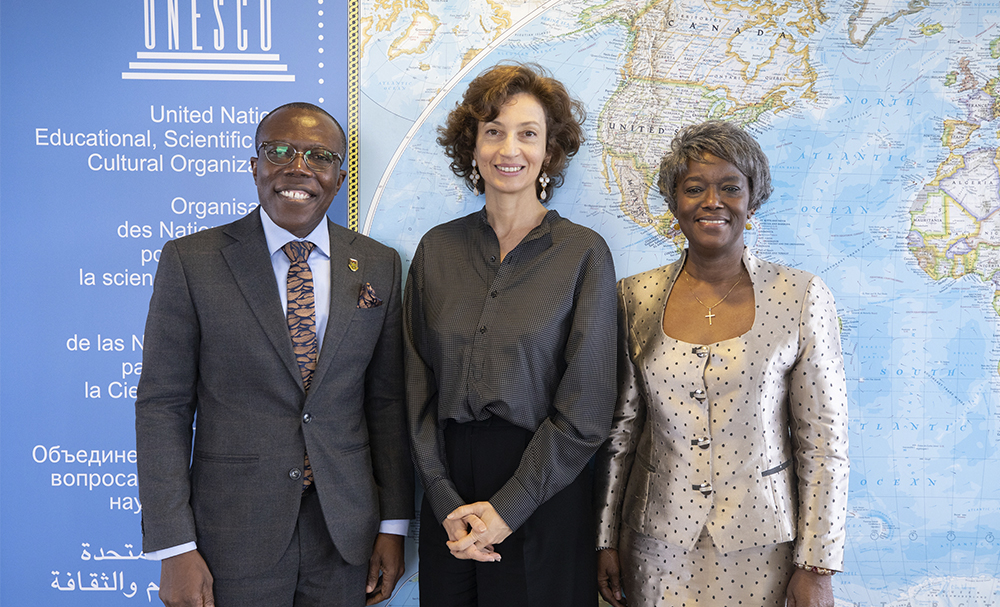
The Centre, which is one of the five centres in the world, will train a new generation of African engineers and technology researchers, especially women. This agreement thus makes KNUST the first University in Africa to host this important Centre of Innovation in Engineering and Technology.
The UNESCO Category II Centre in KNUST will champion the regional main concerns and the priorities of the African Union Agenda, Vision 2063 and the framework of the 2030 Agenda for Sustainable Development and its SDGs by making available knowledge and information on scientific research and linking it to the policy on engineering innovations, manufacturing, and technology transfer.
The Centre shall undertake collaborative research to develop and transfer innovative engineering solutions and manufacturing technology for the sustainable development of the West Africa Sub-region. It will also provide space for product development, dissemination, and knowledge uptake, facilitate continuous professional development in relevant areas of engineering and technology within the West Africa Sub-region and beyond, provide technical assistance to improve competencies and promote standards in manufacturing and technology.

Additionally, the Centre will promote collaboration with regional and international partners to achieve sustainable development and global citizenship targets, modernise indigenous technologies and build partnerships with regional and international partners to achieve sustainable development and global citizenship targets.
Ghana was chosen because it has one of the most developed national innovation systems in West Africa according to UNESCO. The Council for Scientific and Industrial Research, which was founded in 1958, has 13 specialized institutes for the crop, animal, food, water, and industry research. According to the Economic Community of West African States' Science and Technology Policy (2012), Ghana has institutes that specialize in aeronautics, chemistry, and metallurgy.
Again, Ghana's new National Science, Technology, and Innovation Policy has tried to harness science, technology, and innovation as a key driver of the transition to a more sustainable economic model that is less reliant on commodity exports since 2016. Also, in Ghana's Voluntary National Review of 2019, it maps the country's early progress toward the United Nations' Sustainable Development Goals for 2030, the government is promoting "green" innovations such as clean cooking stoves and minimal use of chemical fertilizers to foster responsible irrigation techniques.
The National Science, Technology and Innovation Policy commits the government to raise domestic research expenditure to 1% of GDP in the short and medium-term by combining contributions from the public and private sectors. Plans to set up the Ghana Innovation and Research Commercialisation Centre to serve as a bridge between the government, public research institutions and industry, the setting up of the National Entrepreneurship and Innovation Plan will assist in the establishment of technology incubators. Technology incubators provide facilities and/or in-kind support at an early stage of a company’s development. According to Briter Bridges, Ghana counted 36 active tech hubs, incubators, and accelerators. Ghana reports that one-third (35%) of micro-and small and medium-sized enterprises have already adopted local packaging technologies and that the industry adopted 115 research findings in 2017, up from 70 in 2016. And finally, in Ghana’s quest to set up National Entrepreneurship and Innovation Plan, a Computer Numerical Control Machine Tools Centre is being set up in Accra and Kumasi to develop strategic technologies and provide basic infrastructure for engineering innovation.
The Centre will be housed in KNUST's Technology Consultancy Centre (TCC) infrastructure, which includes all the necessary engineering, technology, and scientific resources. KNUST's Technology Consultancy Centre (TCC) was founded in January 1972 to serve as a link between the university's research and development operations and the entrepreneurial aspirations of Ghanaians. The technology transfer that followed was so successful that it resulted in the development of a strong local manufacturing capability, with such a visible influence that a second ITTU was established in Tamale in 1984. (Northern Ghana). The Ghana Regional Appropriate Technology Industrial Service (GRATIS) Project was established in 1986 by the Ghanaian government to replicate the Technology Transfer Unit model in all ten regional capitals at the time.
TCC expanded into the West African sub-region and the rest of Africa between 1991 and 2000. For example, in Sierra Leone, Ivory Coast, Burkina Faso, Zambia, Benin, Togo, and Malawi, the Centre was instrumental in boosting grassroots manufacturing, particularly in the metal goods sector. The ITTUs' products have made their way around the world. Here are two specific instances that might suffice: Agents from the University of Zambia came over in the early 1990s and understudied the TCC before returning to establish a Technology Development and Advisory Unit (TDAU), and the World Bank hired the TCC to establish an Appropriate Technology Centre at the Magomero Community Development College in Malawi between 1993 and 1995.
Following that, the Centre began working with a variety of national and international organizations to design and implement new technology processes and solutions for community development. Almost all major international development agencies, including USAID, ODA (DFID), CIDA, GTZ (GIZ), the Commonwealth Secretariat's IDU, and OXFAM, have partnered with the Centre on various initiatives. The Centre, therefore, has the needed facilities, personnel, and experience to drive this important agenda having operated under the College of Engineering and Ghana’s Premier Science and Technology University for more than 50-years.
The Vice-Chancellor, Professor (Mrs.) Rita Akosua Dickson, was excited about KNUST's pick and expressed her sincerest thanks to all actors who made this happen. She noted that the institution has made significant contributions to the Ghanaian society, Africa, and the world at large.


